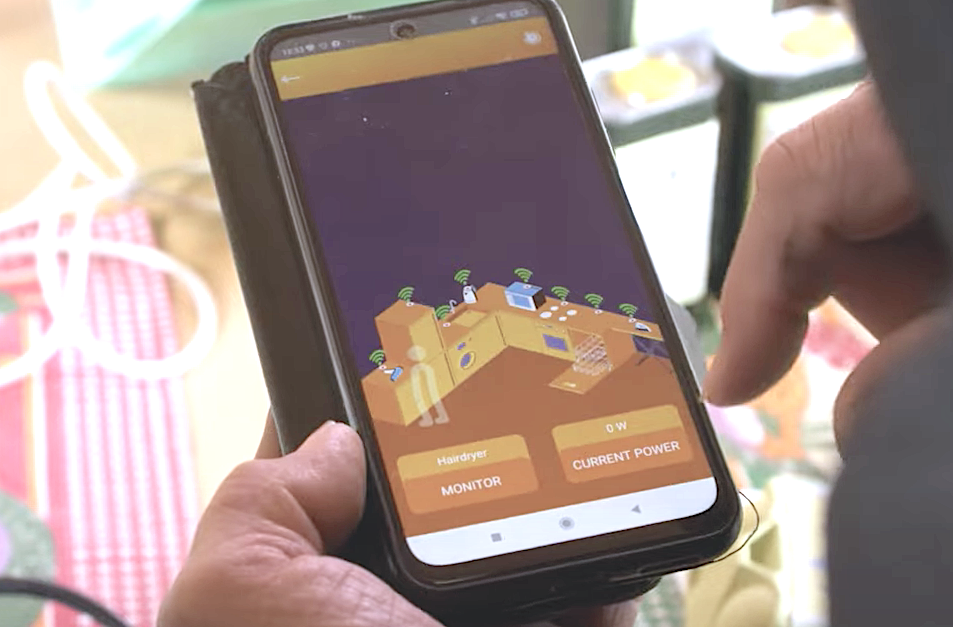Text: Luca Arfini
Despite citizen’s positive attitudes towards tackling climate change, there is a gap between intentions and actions when it comes to shifting to greener habits. Eurobarometer’s data show that 9 in 10 consumers value protecting the environment, and the large majority (68%) recognise that their consumption habits have adverse effects on the environment; nevertheless, far fewer behave sustainably. For example, only 22 % buy products with an environmental label, only 31 % avoid purchasing over-packaged products, and just 37 % take action to reduce their energy consumption.
This is despite Europe’s households making up a significant chunk of the continent’s energy demand.According to to Eurostat data, households represented 27% of the EU’s final energy consumption in 2021. Natural gas was the predominant energy source (33.5% of household energy use), followed by (24.6%), renewables and wastes (21.2%), and petroleum products (9.5%). In the period 2000-2020, per capita residential energy consumption in the EU experienced an increase of 2.7%, while in 2020, it rose by5.2% compared to 2019
But consumers can both contribute to the 2030 climate targets by cutting households’ energy use and helping better respond to the current energy crisis present on our continent. For example, implementing simple actions like lowering the thermostat by one °C can save already 7% of the heating energy used in that household, reducing the annual energy bill by €70. However, behavioural change isn’t easy to achieve due to structural and psychological barriers. For instance, according to the OECD-analysis obstacles like habits, lack of attention, feeling alone in the effort, or overwhelming and unclear instructions prevent people from acting more sustainably. To find a solution to this challenge, a diverse team of scientists, technicians, and companies from eight European countries united forces within the EU-fundedReDREAM project.“The idea was to create a general ecosystem that has the prosumer (a person who is actively involved in the production of the services they consume) at the centre while changing how we perceive and interact with energy resources.
The key innovation of this project was that energy became not only something that you consume but also something you can trade. This shift is crucial for the energy transition, as it redefines energy as a commodity,” explained Andreas Nikoglou of the National Technical University of Athens, who is responsible for analysing the data in ReDREAM.The project designed this new ecosystem to manage energy resources better and get everyone onboard in the energy transition, from big electricity suppliers to everyday users. It was built on a platform that used cloud computing and artificial intelligence to collect and evaluate data. In total 744users from four countries, Bath (UK), Valladolid (Spain), Gallese (Italy) and Varazdin (Croatia), took part in the pilots. They could easily access various tools and services to check and adapt their energy behaviour while sharing their experiences with other users.
The aim was to move towards more efficient energy production, distribution, and usage, ultimately cutting down on CO2 emissions. One of the tools offered to users by the ReDREAM ecosystem was a mobile app which included three specific functions: gamification tools providing real-time feedback on users’ energy consumption from domestic appliances, a digital space where users can connect and share their energy consumption and production data, and innovative interfaces encouraging users to explore and understand more complex aspects and interconnection of energy sources.
“The app offered features like gamification to monitor the energy use of your domestic appliances and guided you in deciding when it was the best time to use these appliances. For example, it suggested how to adjust home heating for your comfort while saving energy. The suggestion was based on your inputs on what you were doing, what you were wearing and the outside temperature. All this served to create a balanced ecosystem,” said Ionah Nuur, Strategist at Soulsight and responsible for the qualitative research of the user experience in the ReDREAM project.
Ionah Nuur added that while it was evident some users were enjoying the app’s different functions, others didn’t fully understand its added value. He says while the app helped users track their energy consumption and share this data with other users, it didn’t send any personalised notifications or actively recommend how to be more efficient in energy use.“I can plug in the car, go on the app, and then see what’s happening. But it’s me searching for the information rather than having the information pushed to me. I think probably, I would have been a lot more active in how I used it if I was getting information sent to me,” commented a British user. Perhaps there could be questions generated by the system that motivate you, like, ‘Today, you haven’t measured anything,’ and then you wouldn’t receive any rewards,” suggested an Italian user.
However, Ionah Nuur also highlighted that many users shared positive feedback on their experience in this project, becoming more conscious of how to use energy efficiently. They understood it best to utilise their domestic appliance store duce energy usage. “One of the major benefits was being able to track consumption, having it available in real-time. Because, until now, you could only track consumption based on the bills. But this app provides real-time monitoring,” explained an Italian user.
“I would need an app of this kind to inform me when I need to consume and when the system is injecting energy into the grid. This could help me calculate how much money I’m earning or saving,” reported a Spanish user. The ReDREAM project, which began its journey over three years ago, is now coming to an end. The hope is that the project could be used as a role model on how digital solutions and a user-focused ecosystem can empower consumers to play a pivotal role in greening the energy market.“I think that an important lesson learned from this project is the willingness of the people to shift the way they use energy; the fact that they are ready for the energy transition,” concluded Andreas Nikoglou.

